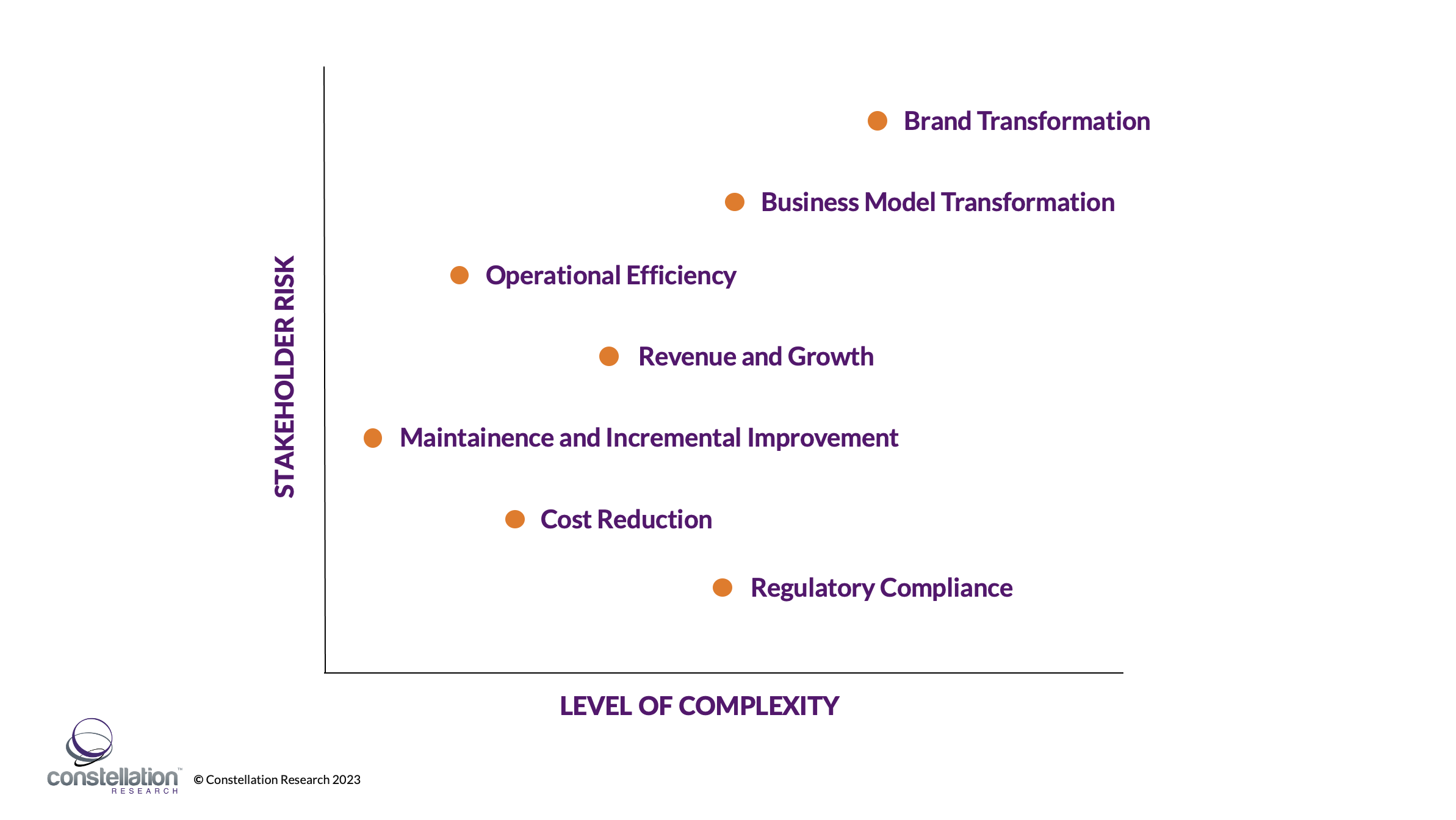Business transformation projects will require more holistic thinking about likelihood of success, difficulty of implementation and durability of outcomes when it comes to returns on investments.
According to a Constellation Research report by Ray Wang, artificial intelligence and business transformation projects require a more holistic view of value created. The report outlines Constellation Research's Return on Transformation Investment (RTI) methodology, which accounts for four elements (cost, benefit, probability and project type) to consider for any digital transformation project.
In numerous customer stories about transformation projects, it's clear that enterprises need to play the long game. However, there's also a need to show returns incrementally. The balancing act is tricky for CXOs.
To balance traditional returns as well as transformational benefits, enterprises need to think through the following:
- Likelihood for success. Transformation projects often sound great and feature management consulting speak. But ranking projects by likelihood of success is often lacking.
- Probability of impact, which requires validating similar projects with early adopters and experts.
- Degree of difficulty. Cost takeout projects are relatively simple, but revenue and growth transformations are more complicated. The trick is aligning transformation projects with real wins for competitive advantage, compliance, which is always funded, and durable and repeatable results.
Using a methodology like RTI can give enterprises a way to prioritize transformation efforts and assess risk. Ultimately, enterprises are going to have to look at business transformation like a portfolio. Here's how a transformation project portfolio could be stacked and ranked.



